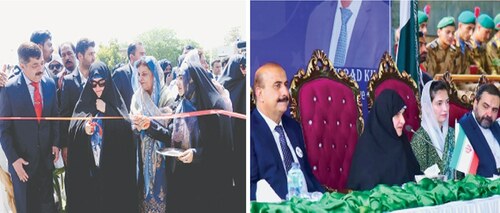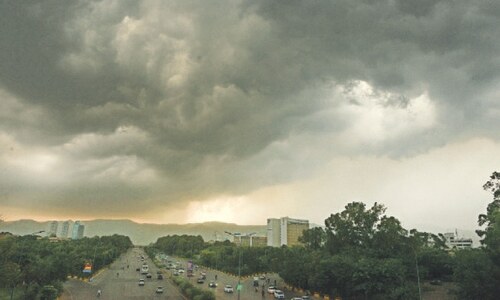ISLAMABAD: For Maria Qureshi, a special person who spends most of her time in a wheelchair, no one in Pakistan cares about people with disabilities who are ignored while formulating policies because of the unavailability of an authentic data.
However, after the Supreme Court of Pakistan directed the government to also count people with disabilities during the census, she was hopeful that proper data would be collected on special persons on the basis of which separate policies would be formulated for them. But her expectations seem turning into disappointment after the recent census.
“My native house is in Hassan Town Lahore and currently I am living in Rawalpindi Saddar. A census team visited my native house but its members did not ask about any disabled person in the family. My family wanted registering me but the team members said they would visit again for the registration of special persons,” she told Dawn during a press briefing arranged by non-government organisations at a local hotel.
“The team, which came to my house in Rawalpindi, also did not ask about any special person. My sister-in-law requested them to add my name as a special person and I hope they have registered me,” she said.
In absence of authentic data, successive govts failed to formulate policies for welfare of people with disabilities
Abia Akram, a resident of Sector G-13, who was also sitting on a wheelchair, said a census team visited her house but did not bother to ask if there was any person with a disability.
“I suggest that the government should take steps to get an accurate data on special persons to formulate policies for them,” she said.
Mohammad Atif Sheikh, Executive Director Special Talent Exchange Programme, said in the 1998 census it was claimed that the number of special persons in the country was 2.49pc of the population. So a 2pc quota was allocated in government jobs for them.
“The latest census has claimed that the number of special persons in Pakistan is 1pc of the population. Having a special child is a taboo in Pakistan due to which people do not disclose the presence of a special child in the family. On the other hand, census teams did not bother to collect data on special persons,” he said.
“According to the World Bank, we have 15pc people with disabilities. Pakistan ratified the UN Convention on People with Disabilities in 2011 but the convention could not be implemented due to the unavailability of authentic data. Our buildings, railways etc., are not inclusive for disabled people,” he said.
“I believe that there are 20 million special persons in Pakistan and they spend most of their life inside the four walls of their houses as there are no facilities for them outside. Even they cannot cast their votes,” he said.
Syeda Munazza Gillani, Country Director Sightsavers, said the World Health Organisation (WHO) recently held a survey in Attock and found 7 to 10pc special persons.
“A disability survey should be held for an effective planning and allocation of resources. The government should take steps to identify the accurate number of special persons and ensure their role in the development of country,” she said.
Dr Sarwat Mirza, health and research executive for Hands, an NGO, said it was inappropriate to ask someone if he had a ‘disabled’ person in the family.
“A questioner should be developed to gather information about special people without hurting them. The Washington Group has devised a short set of questions to ask without hurting someone’s ego.
These questions are: “Do you have difficulty seeing, even if wearing glasses? Do you have difficulty hearing even if using a hearing aid? Do you have difficulty walking or climbing steps? Do you have difficulty remembering or concentrating? Do you have difficulty (with self-care such as) washing all over or dressing? Do you have difficulty communicating, for example understanding or being understood,” he said.
Imran Nazir, the representative of LC Disability and Development Programme, another NGO, said an accurate data was required for resource allocation so the government should hold a national disability survey.
Activist Asim Zafar, who was also on a wheelchair, said in March the government presented a form to the Supreme Court containing separate boxes on disability and transgender people. But the form was not used by the census teams.
“We were informed that 55 million forms were printed in 2008 and used in the census. We appeal to the Supreme Court to take notice of the matter and direct the government to hold a national disability survey,” he said.
Published in Dawn, September 19th, 2017














































Dear visitor, the comments section is undergoing an overhaul and will return soon.